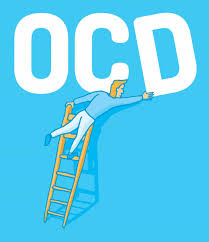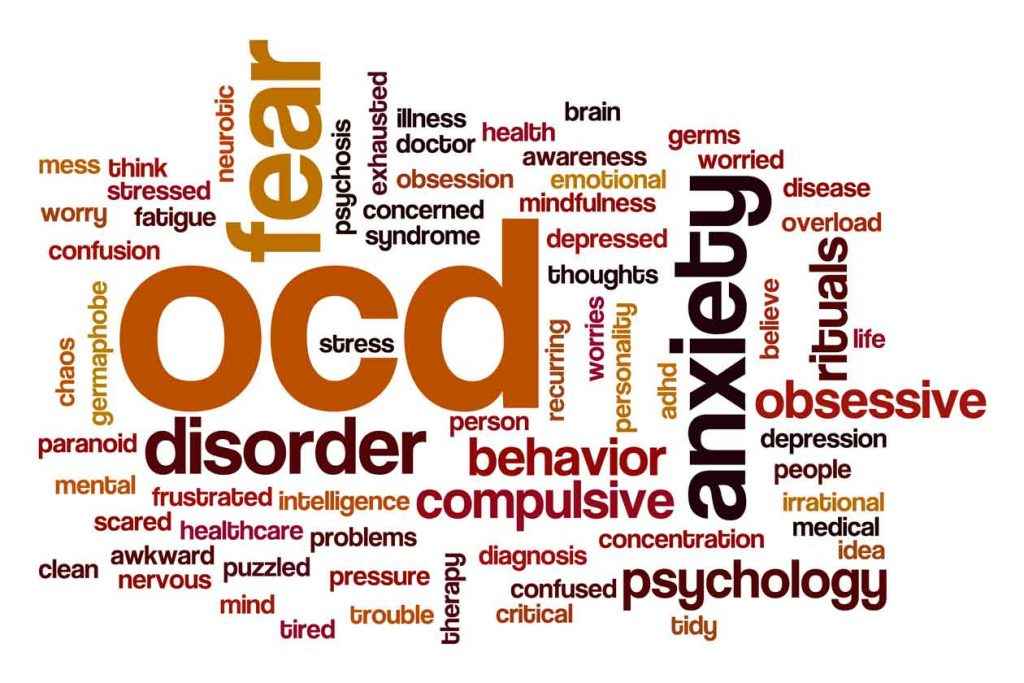If you are one of the millions of people who suffer from OCD and anxiety, you know how debilitating it can be. The good news is that there is help available! In this blog post, we will discuss some of the best ways to get relief from your symptoms. We will also offer advice on how to cope with OCD and anxiety in everyday life.
Contents
What Is OCD?

Obsessive-Compulsive Disorder (OCD) is a mental health condition characterized by intrusive, obsessive thoughts and compulsive, repetitive behaviors. People with OCD experience obsessions and compulsions that can interfere with their daily lives. Obsessions are unwanted, intrusive thoughts, images, or impulses that cause distress and anxiety.
Compulsions are repetitive behaviors or mental acts that a person with OCD feels driven to do in an attempt to reduce the distress or anxiety caused by the obsessions. Common compulsions include hand washing, checking doors and locks, counting and arranging objects, and seeking reassurance from others. People with OCD may feel stuck in a vicious cycle of compulsive behavior, feeling overwhelmed and unable to break free.
What Is Anxiety?
Anxiety is a type of stress response that can range from mild to severe. It’s part of the body’s natural way of responding to danger or threat. Anxiety can be experienced in many different forms, including physical sensations, thoughts, and behaviors.
How Do You Suffer From OCD And Anxiety?
OCD and anxiety can be crippling conditions that interfere with your ability to lead a full and productive life. While there is no single cause for OCD and anxiety, it is important to understand the symptoms and triggers in order to develop strategies for managing them.
Common signs of OCD include intrusive thoughts or obsessions, repetitive behaviors or compulsions, and avoiding certain situations or activities. Anxiety can involve feelings of fear, worry, racing thoughts, irritability, restlessness, and difficulty concentrating.
Treatment for OCD and anxiety typically includes cognitive behavioral therapy (CBT) or medication. CBT helps individuals to recognize the distortions in their thinking that lead to obsessive behavior and irrational fears.
Can Anxiety OCD be Cured?
Yes, Anxiety OCD can be cured. Treatment for anxiety OCD typically includes cognitive behavioral therapy (CBT) and/or medication. CBT helps you to learn how to identify, challenge, and replace negative thoughts that cause fear and worry with more realistic, positive ones. Medication such as antidepressants or anti-anxiety medications may also be prescribed to help manage the physical symptoms associated with anxiety and OCD. With the right treatment, many people can learn how to control their anxiety and lead more fulfilling lives. It is important to talk to your doctor or mental health provider if you think you might have Anxiety OCD so they can provide an appropriate diagnosis and a course of action.
How Do You Relax Your Brain For OCD?
Relaxation techniques are an important part of managing OCD. Relaxing your brain can help reduce anxiety and intrusive thoughts associated with OCD. Here are some tips to help you relax your mind:
Practice mindfulness meditation
Mindfulness meditation is a great way to focus on the present moment, letting go of worries and intrusive thoughts.
Take deep breaths
Taking deep, slow breaths is a great way to calm your body and relax your mind. Focusing on each breath will help you stay present and reduce stress.
Engage in physical activity
Exercise releases endorphins, which can lift your mood and lower anxiety levels. Regular physical activity can be a great way to relax your mind.
Spend time in nature
Nature can have a calming effect on the mind and body. Taking a walk in the park or listening to the sound of waves crashing against the shoreline can help reduce stress levels significantly.
Listen to soothing music
Music has the power to shift our moods and relax us. Listening to calming, slow-paced songs can help reduce stress levels and relax your mind.
Practice progressive muscle relaxation
Progressive muscle relaxation is a technique that helps you systematically relax each part of your body. This can be an effective way to relax your entire body and lower stress levels.
By regularly practicing relaxation techniques and engaging in activities that help relax your mind, you can reduce the stress and anxiety associated with OCD. These strategies are a great way to keep intrusive thoughts at bay and improve your overall well-being.
How Can I Help My Anxiety?
If you have anxiety, it can be difficult to manage your symptoms. The key is to identify what triggers your anxiety and develop healthy strategies for dealing with it. Here are some ideas:
1. Practice relaxation techniques such as deep breathing, progressive muscle relaxation, guided imagery, or mindfulness meditation.
2. Exercise regularly to reduce stress and boost your mood.
3. Eat a healthy diet to ensure your body is getting the nutrition it needs.
4. Get enough sleep every night as inadequate rest can make anxiety worse.
5. Talk to someone who understands, like a trained mental health professional or support group.
6. Try Cognitive Behavioral Therapy (CBT) which helps to identify and replace unhelpful thought patterns with healthier ones.
7. Develop healthy coping mechanisms such as journaling, distracting yourself with hobbies or activities, or talking to a friend about what you’re feeling.
8. Learn how to challenge your anxious thoughts in order to make them less powerful.
9. Practice deep relaxation and self-soothing techniques like yoga, massage, or aromatherapy.
10. Stay connected with friends and family who can support you when needed.
By recognizing your triggers and developing healthy strategies for managing your OCD anxiety, you can reduce its impact on your life. With the right tools and support, you can live more fully and confidently.
Conclusion
It may be concluded that help for those who suffer from OCD and Anxiety can be found in a variety of ways, from personal therapy and support groups to mindfulness and relaxation techniques. There is no single “cure” for anxiety or OCD, but many treatments can help people manage their symptoms and lead fuller lives. It is important to remember that seeking out help when it is needed is vital in order to manage symptoms and lead a more balanced life. With the right help, anxiety and OCD can be managed in ways that allow individuals to live full, meaningful lives.
For more information and guidance, please contact OCD Mantra. If you have any queries regarding OCD treatment, ERP therapy experienced therapists at OCD Mantra can help: Book a trial OCD therapy session


